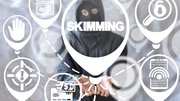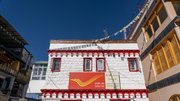News
Not your bank's ATM
With the advent of ISOs in the UK, Brits will begin seeing more ATMs designed specifically for the retail market.
December 28, 2000
Most of the ATMs in the UK are nothing like the typical machine that dominates America's retail landscape.
UK ATMs tend to be the bigger, bulkier monoliths typically used in bank deployments, installed through-the-wall and, in many cases, with several machines at one location.
"You might go someplace where they have three or four machines on one wall," said Tom Hannon, president of Hanco Systems, an American ISO that entered the UK market in July. He guessed that the country's 33,000 ATMs are found in perhaps 12,000 locations.
Hannon is one deployer who thinks the UK market is ready for the broad introduction of the scaled-down, freestanding machines commonly found in U.S. c-stores and gas stations. Along with the surcharge and dial-up technology - both of which are also making inroads into the UK - less expensive hardware helped launch America's retail ATM market in 1996-97.
Hannon deploys Triton's 9600, which he believes carries a lower cost of ownership than most other ATMs currently found in the UK. "Why would you want to deploy a machine that's going to cost you $2,000 a month to maintain?" he asked.
Several British ISOs are migrating toward equipment designed specifically for the retail environment. Paul Stanley, managing director of Moneybox Corporation, said his company started out deploying NCR Personas 70s, then switched to the less expensive, less complex MCD (recently renamed the CashPoint 55).
Carlos Siewczynski, Tidel'svice president of international sales, thinks machines such as his company's is2000 will catch on quickly in the UK because of retailers' previous exposure to them. "They come to trade shows or vacation here in the U.S. and read trade publications -- they see that the freestanding, off-premise ATMs are more profitable than their traditional bank ATMs," he said.
Brian Kett, Triton's senior vice president of sales and marketing, said the U.S. example will likely speed the acceptance of lower-end hardware in the UK. "I think the U.S. market legitimized the consumer offering so that the UK and other new markets don't necessarily have to go through a long learning curve."
Retail machines will be popular with the British public because they're generally located in busy, well-lit indoor sites, said Kevin Bond, managing director of De La Rue'sOEM division. "There's an issue of security. People feel more comfortable using a machine when there are other people around."
The scaled-down size of retail ATMs is another strong selling point, said Hansup Kwon, president of Cross Technologies, which manufactures the Mini-Bank line of machines. "I think Europe is even more space-restricted than the U.S."
Yet Kwon isn't convinced that the UK market is really ready for widespread deployment of retail machines. He believes an underdeveloped infrastructure may hinder the efforts of all but the largest manufacturers.
"I don't think the UK market is ready for people like us. It may be ready for the NCRs and the Diebolds," Kwon said. "The processing, distribution and service networks aren't there yet."
ISOs are just beginning to gain a higher profile in the UK. Five independents -- Hanco, Moneybox, InfoCash, Securicor and TRM Corporation -- were recently admitted to Link, the country's national ATM network. Two of them -- Moneybox and TRM -- are deploying NCR machines, while the others are Triton distributors.
Unlike the U.S. market, with its relatively large number of third-party processors, the UK is served by two major players: PSINet and Atmos,which is owned by Link. According to John Hardy, CEO of Link, Atmos drives all but a few hundred of the UK's approximately 3,100 independent machines.
With the exceptions of a few companies like Hanco, which is setting up its own service division, most independents in the UK have chosen to outsource their service to a handful of large companies. Moneybox, for instance, uses NCR to install and service all of its machines.
Stanley said that decision was driven by a need for speed. "If you're going to move quickly in a market, you need somebody who has an infrastructure to support you. If our plan had been to do 20 machines a month, we would have considered having our own installation people or outsourcing to various third parties."
Kwon identified the newness of the ISO model as another major challenge in the UK. Kwon's U.S. distributors sell primarily to the "mom and pop" market, rather than to large retail chains. Before he can successfully explore that niche in the UK, Kwon said he must identify and educate potential distributors -- perhaps recruiting them from the ranks of those who sell other products to small retailers.
"Unfortunately -- or fortunately, I don't know -- that may be the route we have to go," he said.
Included In This Story
Triton Systems
Triton FI based products • NO Windows 10™ Upgrade • Secured locked down system that is virus/malware resistant • Flexible configurations - Drive-up and Walk-up • Triton's high security standards • NFC, anti-skim card reader, IP camera and level 1 vaults are all options • Triton Connect monitoring • Lower cost
 ChatGPT
ChatGPT Grok
Grok Perplexity
Perplexity Claude
Claude












